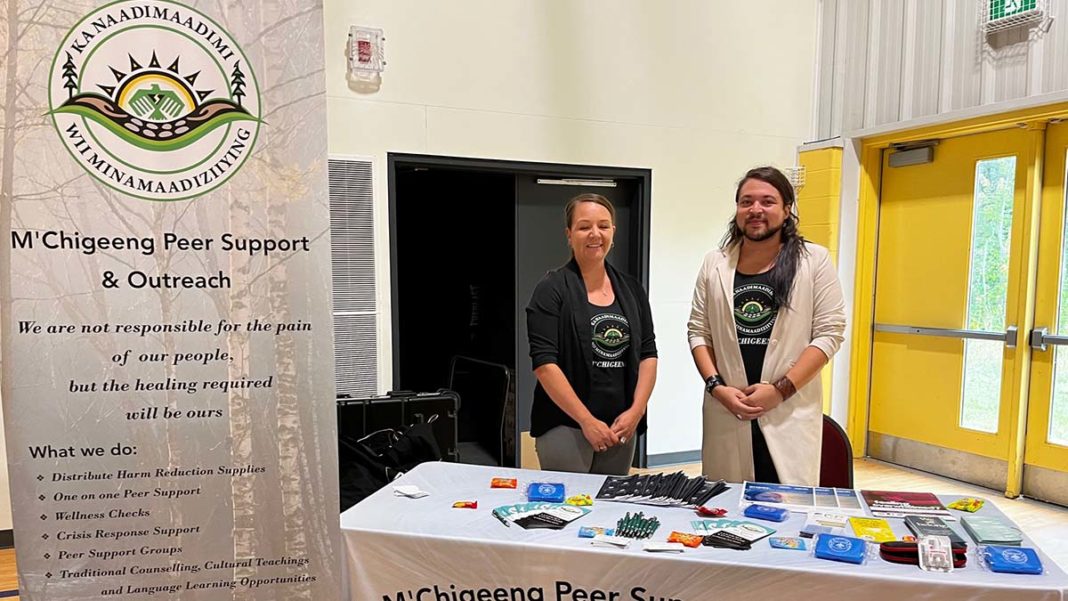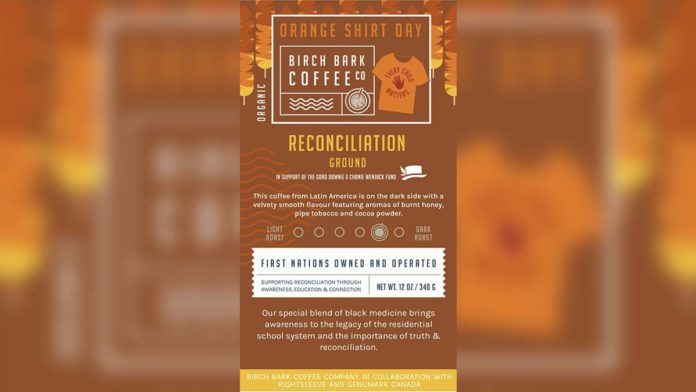AUNDECK OMNI KANING—Services to help those struggling with addiction are available on the Island but people don’t know about them. That was a general consensus among service providers and participants at the addiction recovery breakfast held last week in Aundeck Omni Kaning. First Nations communities especially have been leaders in providing wraparound care, making it easier for Indigenous individuals and families on the Island to access a range of services.
Allison Dodge is a mental health and addictions worker with Noojmowin Teg Health Centre. Ms. Dodge has worked in this field for about 10 years so she knows what help is available but knows that doesn’t mean that others do. “I hear it all the time,” she said. “There’s nothing offered. I know it’s offered. There’s lots offered, but we need to get that information out there, which is why it’s important to have something like this breakfast event available.”
At Noojmowin Teg, which provides services to Manitoulin’s seven First Nation communities, clients have access to multiple service options, Ms. Dodge said. “That’s the braided philosophy that we have, where we can kind of braid mental health with traditional. When I’m working with somebody for mental health, I also look at ‘How’s your nutrition going? Maybe you should speak with my dietician. Do you have a family doctor? No? Let’s connect you to primary care. It’s really that whole braid of care.”
M’Chigeeng First Nation is utilizing a similar approach with its Addictions Services Initiative and Peer Support and Outreach programs, assisting with access to multiple services through one point of contact. Leslie Scott is a systems navigator with the Peer Support and Outreach Program. Her job entails helping anybody in the community who needs access to supports, services or resources.
That’s a vast number of things, she said. “It could be somebody coming in to apply for ODSP or looking to go back to school. It’s more the bridge for the community and departments. Lots of people don’t know where to go so they can come to me and I can help them fill out online paperwork. I can help them do applications. A lot of people want to do treatment and I can get them there within sometimes two days.”
She pointed to co-worker Wrenn Corbiere, who was recently hired as a mental health and addictions educator. He will be providing the education portion for the program for the community. “It could be how to use Naloxone kits, or what are opioids or different substances, or what is a harm reduction kit and why are we handing them out,” she said.
“Right now, we’re working on breaking the stigma in our community, what community thinks we’re doing versus what we’re actually doing,” said Ms. Scott.
The peer support and outreach program is a 24 hour program. In the morning the centre opens between 8 am and 8:30 am and runs until midnight. There is a low barrier shelter that opens at 10:30 pm and runs until 8:30 am. “That’s 24 hours for people to have somewhere to go. Whether it’s to get a coffee, get a snack or talk to somebody, they can access one of the two buildings.”
The outreach team also heads out into the community twice a night, loading up their backpacks with harm reduction supplies, snacks, drinks and they go out and they knock on community doors. “Sometimes, somebody just needs someone to talk to,” Ms. Scott said. They’ll run into people walking on the street and offer food, drink or just support. “It’s really needed in the community,” she added.
The program has just hired two counsellors, one for youth and one for adults. They will work out of the Health Centre. “Right now we’re kind of spread out but we do move around,” Ms. Scott said. She works in her office for the morning and then heads to the outreach centre in the afternoon in case anybody needs her.
The program’s language and cultural facilitator, Brian Peltier, leads community activities with a culture-based aspect. Mr. Peltier heads out on outreach, knocking on doors and meeting up with other people in the community who are fluent in the language and just sits there and chats with them. “They’ve gone strawberry picking. They made hominy corn from scratch. They planted a community garden. He’s there speaking the language all the time. We’re all trying to learn it. He’s a really big part of our team. He’s needed. The community really likes to talk to him,” she said.
The program has grown. Ms. Scott has seen it grow quickly since she started there in April. They celebrated their first anniversary in August.
Joan Hoekstra, an addiction services case worker in M’Chigeeng, agreed that people are often afraid to reach out. Events like the recovery breakfast help them know they’re not alone. “There are lots of support programs and services for people,” she said. “They just have to look for them and ask for help. We’re there to help them.”




